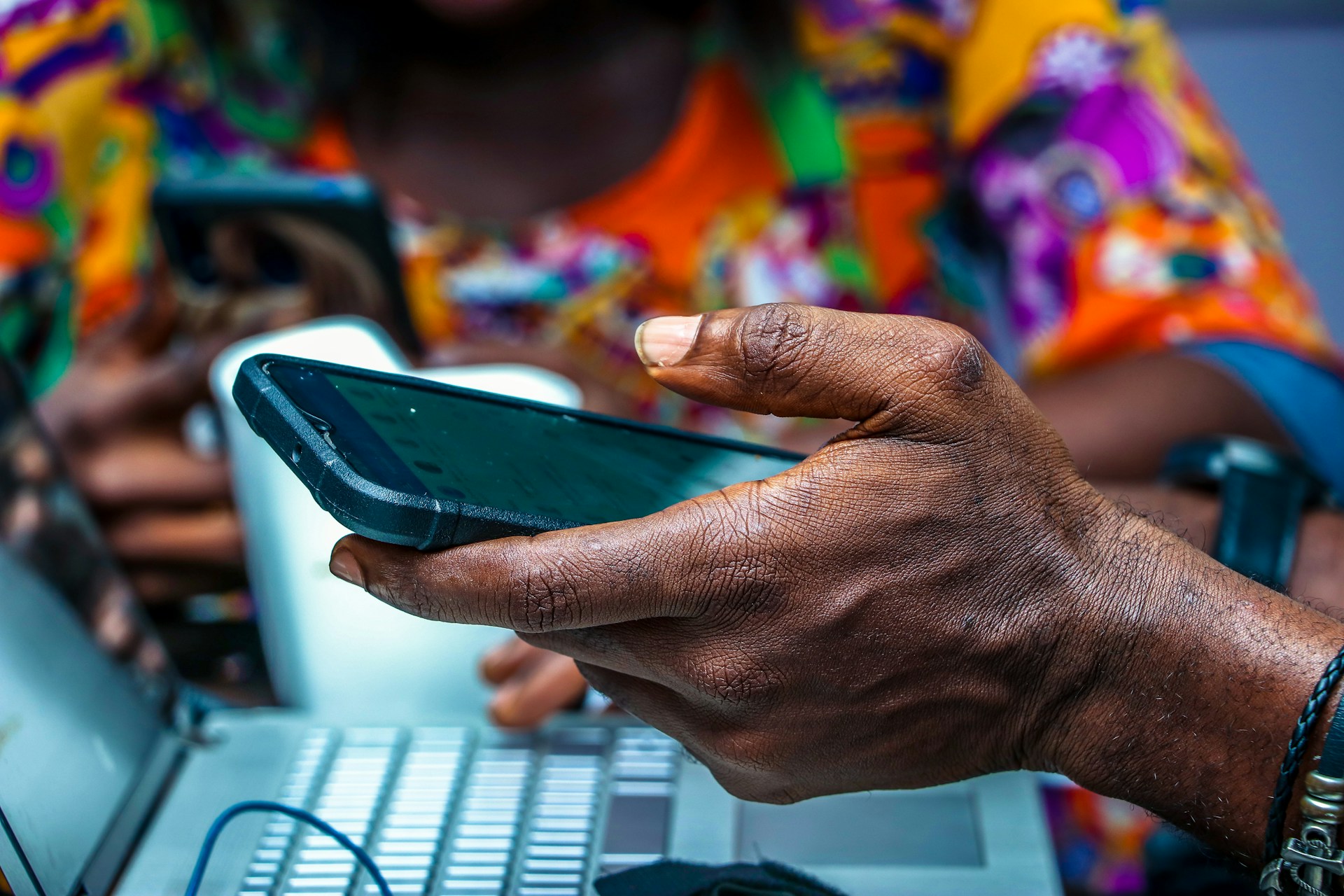In 2024, Nigerians imported ₦60.59 trillion (~$40 billion) worth of goods according to the National Bureau of Statistics (NBS). Manufactured products accounted for 44.2 percent of the total, roughly ₦26.78 trillion ($17.8 billion), covering everyday items like clothes, electronics, footwear, and household goods.
A significant share of these imported goods were purchased online through platforms like Jumia—where Chinese sellers account for about one-third of marketplace sales—Konga, and AliExpress. Outside e-commerce platforms, WhatsApp groups now act as informal import networks, helping Nigerians source and ship goods, mostly from China, directly to buyers.
This strong preference for imports has hurt local businesses and reinforced the “Aba-made” stereotype, a dismissive label for Nigerian-made goods perceived as cheap or substandard. Government campaigns like “Buy Naija to Grow the Naira” have tried to change this mindset but achieved limited results.
This is the problem SefRel Shop wants to solve. The e-commerce marketplace, co-founded by software engineer Ridwan Akinola, exclusively sells Nigerian-made goods. Launched in late 2024, SefRel (culled from self-reliance) Shop bets that with proper visibility, logistics, and trust, Nigerians will choose local products and see their value differently.
“We believe that in Africa, we need to be self-reliant in creating solutions to our problems,” Akinola said. “We don’t need to depend too much on foreigners for things we can do at home.”
Goods sold on the platform are partly produced, assembled or branded in Nigeria. “Whatever the Ministry of Industry, Trade and Investment sees as Nigerian-made products, that’s our standard,” Akinola explains.
That rule wasn’t there initially. During beta testing, vendors sold both foreign and local products. Once Akinola saw the model worked, the team switched to Nigerian-made products earlier in 2025, completing the transition by September 1st. Since then, he’s doubled down on quality checks.
Authenticating products
Verification happens in two stages. First, vendors are screened before approval, sometimes asked to submit video evidence of their factories or warehouses. Second, approved products don’t go live until descriptions are verified.
“People already have [a] bad perception of Nigerian-made products. We cannot afford bad products on our platform. Trust is very important,” he says.
The goal exceeds commerce. Akinola says he sees “SefRel Shop as a movement”, one that exists to showcase Nigerians making authentic and high quality merchandise.
Early traction
According to Akinola, 30 to 40 vendors are active on the platform, serving over 100 customers, with another 80-plus vendors on the waiting list. Within months of switching to local goods, SefRel crossed about $1,200 in revenue, he said.
Revenue comes from three streams: subscriptions, commissions, and ad placements. Vendors begin with a 30-day free trial. After that, there are six subscription tiers, from $11 monthly starter plans to about $130 enterprise packages. Higher plans mean lower commission rates, which range from 3% to 13%. Enterprise vendors also get premium visibility and influencer promotions.
For payments, SefRel uses Paystack.
For deliveries, it partners with local dispatch riders, God Is Good Motors and SpeedAF. “We do not have capacity yet to manage our logistics so we work with these companies. They have been tested and trusted and haven’t disappointed,” Akinola explains. “Collaboration makes business easier than competition.”
Lean start
The company runs lean. It’s fully bootstrapped, with about fifteen volunteer staff working without pay, including Akinola. “Everybody on the team is making sacrifice to make this work,” he said.
Efforts to secure any venture or angel funding did not yield results without significant traction. “I think that was our problem when we started in 2024. In many places we applied for grants, they always said we have good ideas but that never resulted in money or serious support,” he said.
That changed with the Africa Assembly competition, where the startup won first place, securing its first funding and an eight-week incubation programme.
On the technical side, SefRel Shop runs on a cost-effective setup with off-the-shelf tools and plug-ins. Akinola admits they would prefer a more robust and scalable infrastructure but say upgrading will require more capital. “We are pushing hard to upgrade our platform because if we don’t, traffic from visitors can strain and might crash the platform. Everything we need is tied to funding,” he said.
Looking ahead
Akinola is eyeing bigger partnerships from auto brands like Innoson Motors to manufacturers like Terra Industries. The target is 500 vendors by year-end to ensure customers find what they need.
Beyond its year end goal of increased stock, the company has an ambitious mission to “centralise the market for Nigerian-made goods so that even when someone in the diaspora needs any products from Nigeria, they know where to go.” Not only will this venture create jobs and scale across the continent, but it will, if successful, turn “Made in Nigeria” from a warning label into a badge of pride.
Mark your calendars! Moonshot by is back in Lagos on October 15–16! Meet and learn from Africa’s top founders, creatives & tech leaders for 2 days of keynotes, mixers & future-forward ideas. Get your tickets now: moonshot..com









